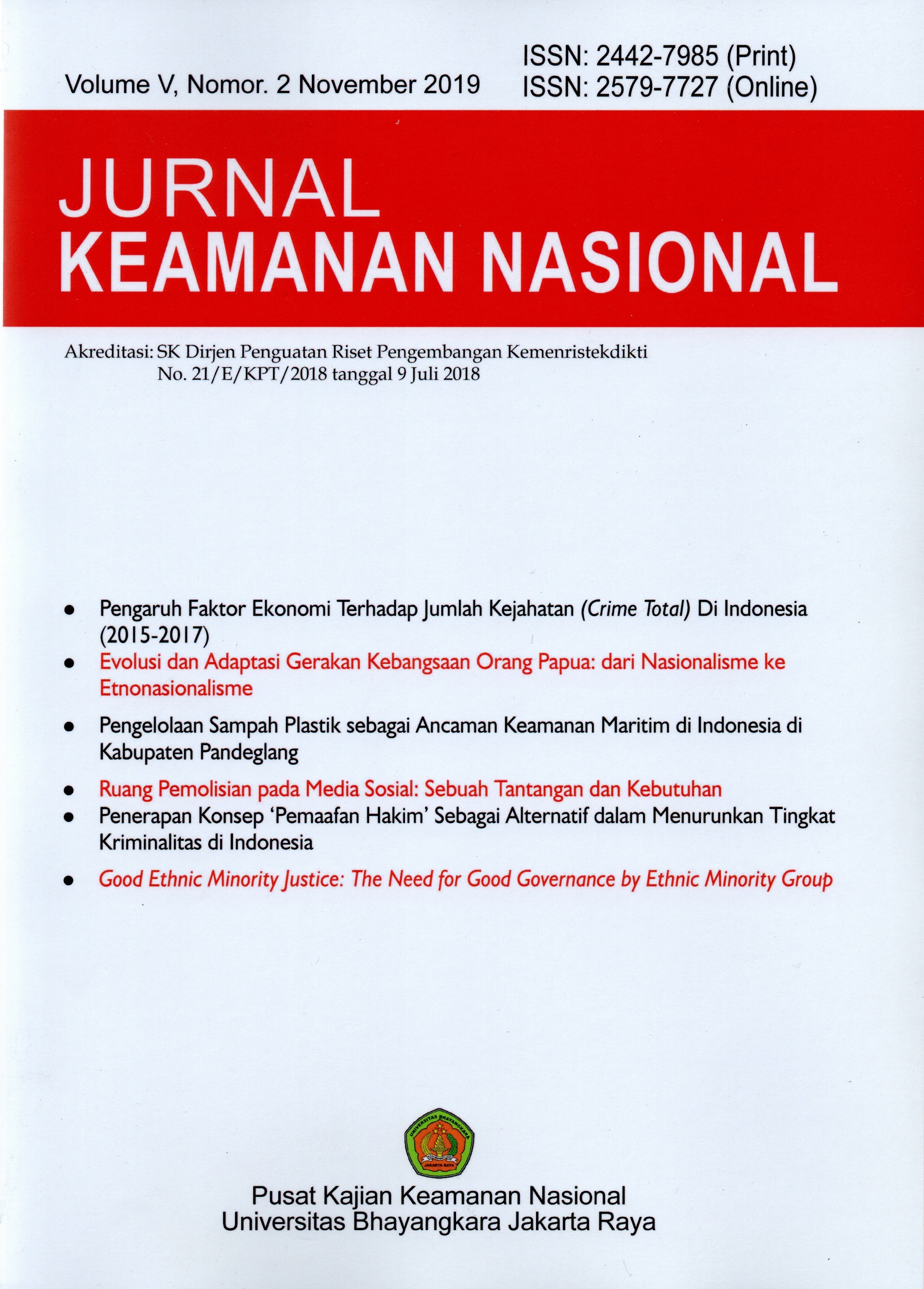Evolusi dan Adaptasi Gerakan Kebangsaan Orang Papua: dari Nasionalisme ke Etnonasionalisme
Keywords:
Ethnonationalism, primordialism, identity, independence, resilienceAbstract
Papuan ethnonationalism is the oldest Papuan nationalist movement that arose when outsiders began arriving in Papua with the intention to control the region, since the arrival of Protestant and Catholic missionaries, and the presence of Dutch, Japanese, and Indonesian Indies. Five roots have fostered Papuan ethnonationalism that has evolved to the present: the roots of the Melanesian race, the roots of local religions, the roots of indigenous ties, the roots of the formation of government and political elites in the Dutch East Indies era, and the roots of Feelings of being deprived/uprooted from their land economic exploitation. Papuan ethnonationalism was transformed into Papuan Nationalism which was formed by the Dutch East Indies Government was intended so that West Papua would not become part of the Republic of Indonesia and become an independent state in the process of decolonization carried out by the Dutch in West Papua. But after Indonesia succeeded in taking over West Papua, Papuan Nationalism was transformed back into Ethnonationalism, the symptoms of which have strengthened in the last two decades. This symptom of ethnonationalism strengthens the resilience of the Papua independence movement on the one hand and weakens Indonesia’s national resilience on the other. Papuan ethnonationalism is identical with theories about ethnonationalism and the
characteristics of Kurdish and Tamil ethnonationalism.
Downloads

Downloads
Published
Issue
Section
License
Please read and understand the copyright terms for submissions to this journal.
Copyright Notice
The Jurnal Keamanan Nasional is under the Creative Commons Attribution 4.0 International (CC-BY 4.0) License, according to which:
1) Authors retain copyright and grant the journal the right to first publication, with the work simultaneously licensed under the Creative Commons Attribution (CC-BY 4.0) that allows the sharing of articles published with the acknowledgement of authorship and the initial publication in this journal.
2) The authors are authorized to make additional contracts separately for distribution of the version of the work published in this journal (for example, publication in an institutional repository or as a chapter of the book), as long as there is recognition of authorship and initial publication in this journal.
3) Authors are authorized and encouraged to publish and distribute their work online (for example, in institutional repositories or on their personal pages) at any time before or during the editorial process, as it increases the impact and reference of the published work.












